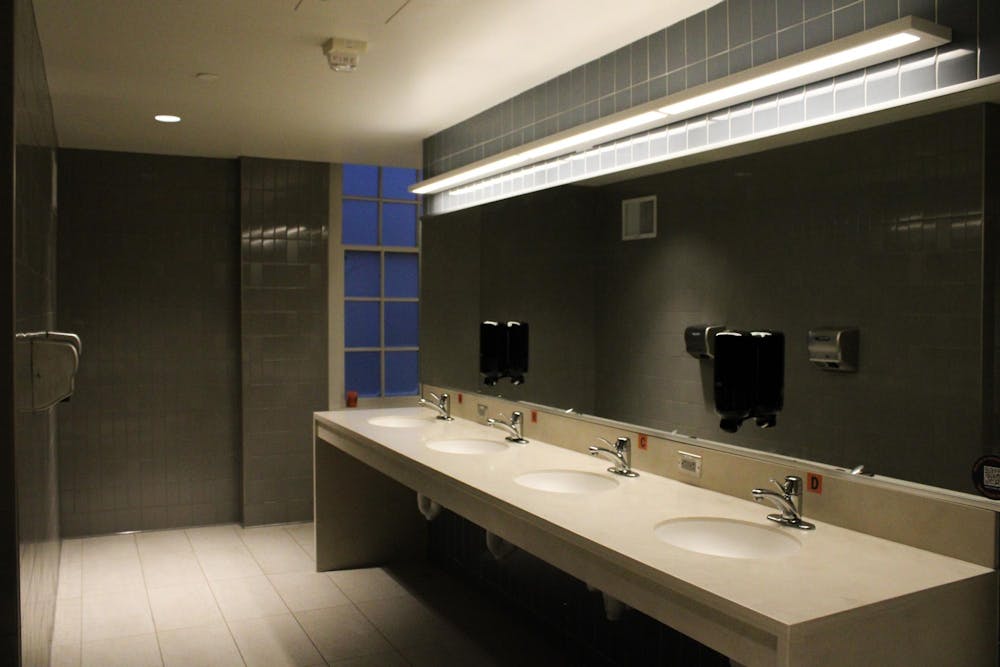I dislike hand dryers, so I have had a bone to pick with Housing and Residence Life for three years. In December 2021, at the end of my first semester at the University, an email from HRL informed residents of McCormick Road dorms that the paper towels they had enjoyed since matriculation had only been a temporary COVID-19 mitigation measure — and would be removed as of January 2022. My petition and my peers’ outrage made no difference in the decision, and we were soon towelless in Lefevre House.
Despite hundreds of signatories voicing their frustration, HRL consistently preferred flawed reasoning which ignored the costs of such actions to a logical amenity that aligned with students' wishes. If the balance of environmental, economic and social concerns had been seriously considered, first years would still have paper towels today. This is emblematic of a larger issue inherently present in organizations like HRL — the decisions of HRL neither reflect the preferences of residents nor appear to be resting on sound reasoning.
During their renovation a few years ago the dorms had been equipped with new hand dryers, reflecting HRL’s phase-out plan of paper towel dispensers. The removal of paper towels was not isolated to first-year dorms, but it was rather a piecemeal attack across Grounds. My second year, while living in the Shea House, students were again surprised with an email announcing that workers would be coming in shortly to install hand dryers and remove paper towel dispensers. The decision received significant pushback, understandably so for its lack of prior student notification or explanation — yet HRL intended to follow through with or without student support.
Yes, removing paper towels offers the environmental benefit of waste reduction but also poses serious social costs. Without paper towels, it is more difficult for students to clean up after themselves, leading to dirty bathrooms and additional work for janitorial staff. Furthermore, the implementation of hand driers results in noisy living situations and the spread of airborne pathogens, increasing the likelihood of health issues. Since HRL itself cited COVID-19 mitigation as the reason for its temporary provision of paper towels, it is clear they were aware of the capacity of hand driers to spread communicable diseases. HRL clearly understood the benefits of paper towels during the pandemic, and so the disregard for these benefits post-pandemic seems stridently unreasonable and irresponsible.
One might argue that if a resident wants clean counters and dry hands without the noise or spread of germs caused by hand driers, they could simply purchase paper towels themselves or switch to reusable towels. However, there are organizational barriers to fairly deciding who should purchase paper towels among a large group of students. While in a smaller suite-style accommodation it might be feasible for housemates to take turns, this is not possible in hall-style dorms. In McCormick Road dorms, where 45 students share one bathroom, and Alderman Road dorms, where 25 students do the same, crowdfunding paper towels is impractical.
While HRL never gave a reason for their phase-out plan, they appear to have prioritized meeting some environmental goal or cutting down on paper towel spending at the expense of a concern for students. It is true that hand dryers are more environmentally friendly than paper towels, which rely heavily on natural resource consumption. That said, not all environmental initiatives pose a net gain for society. Sometimes, the more reasonable choice is to maintain default practices and not switch to the “greenest” alternative.
For example, single-use hygienic products are effective and necessary in numerous environments. Such products include surgical masks, rubber gloves, menstrual products and toilet paper. In a bathroom shared by 45 students, single-use paper towels are just as necessary. Hygiene is not compromised on environmental grounds when it comes to rubber gloves or toilet paper, so why compromise it at the University when it comes to paper towels? This inconsistency between prioritizing students’ needs at times and imprudent environmental benefits at others demonstrates the flaws in reasoning that the removal of paper towels is based around.
HRL must find a point where student welfare and environmentalism meet. Across Grounds, there are composting receptacles for paper towels. Why not implement these in dorms as a way to balance environmental concern with care for students? Furthermore, HRL must develop more tangible platforms to protect the student voice in changes made to their living situation. Whether it would be the recognition of student petitions or town halls with professional staff of HRL, there is no doubt that this would increase the transparency of the process and the likelihood of a positive outcome between students and administrators.
Although my first-year petition eventually lost momentum, the residents of Shea House successfully postponed hand dryer installation past the finals period. To be sure, the victory was small. Yet, the brevity of this moment further emphasizes the lack of institutional power that students have in being heard by HRL. Against HRL, we as students have been held powerless in our opposition to their own flawed reasoning. Hopefully, toilet paper is not the next to go.
Ezgi Stump is a viewpoint columnist who writes about economics, business and housing for The Cavalier Daily. She can be reached at opinion@cavalierdaily.com.
The opinions expressed in this column are not necessarily those of The Cavalier Daily. Columns represent the views of the authors alone.







